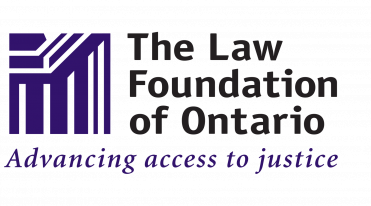Applying for a grant: what you need to know
We are currently experiencing a high volume of applications. While we are still accepting applications, please note that reviews and consultations for new applications submitted after May 12, 2025 will be paused until September.
Thank you for your understanding and continued interest in our Responsive program.
The Law Foundation of Ontario invites applications for its Responsive program.
Responsive grants:
- Support unmet financial needs of nonprofits, charities, and Indigenous groups that are working to improve access to justice for the people of Ontario
- Support work that advances access to justice through legal education, legal research, or services or programs with legal content, e.g. that supplement existing legal services or fill gaps in the justice system by connecting people to legal information and support, especially people who are not otherwise being reached
- Are for up to $250,000 per year for up to 2 years
We are currently experiencing a high volume of applications. While we are still accepting applications, please note that reviews and consultations for new applications submitted after May 12, 2025 will be paused until September.
Thank you for your understanding and continued interest in our Responsive program.
There is no deadline for applying to the Responsive program.
Organizations are invited to submit an application outlining what they propose to do and how they propose to spend a grant. If eligible, they will be invited to a consultation with Foundation staff and asked to provide more details and answer any questions. Once all information has been provided, the application will be brought to the Foundation Board for a granting decision.
Our goal is to provide applicants with a granting decision within 6 months from the time of their initial application. Projected grant start dates should be set accordingly.
To facilitate a timely and positive outcome, interested organizations should:
- Review the Evaluation Criteria to assess whether your initiative is a likely fit for this program
- Complete the Eligibility self-assessment checklist to ensure your organization and initiative are eligible for this program
- Submit your Application (Parts I, II, and III, along with any additional supporting documentation) to grants@lawfoundation.on.ca
- Foundation staff will contact you to schedule an initial 1-hour consultation in the fall
To be eligible for a grant, applicants must be one of the following:
- Registered charities or incorporated nonprofit organizations
- Canadian universities or colleges
- Indigenous organizations
- Unincorporated organizations, committees, or associations, so long as you possess a signed letter of commitment from one of the eligible payees listed above
AND
- must not be current Catalyst grantees of the Foundation
- must not be current Responsive grantees of the Foundation unless there are less than 6 months remaining in your Responsive grant
Eligible applications must NOT include:
- A request to support the legal fees related to the litigation of a specific legal matter
- A request to support the costs directly related to lobbying, advocating, or promoting a particular position on a legal or public policy issue to any level of government (see FAQ below for more information)
You are encouraged to apply for the unmet financial costs of your legal project, program, or service so that you have what you need to be successful.
The following is a non-exhaustive list of typical activities for which you may seek funding:
- Activities to develop a new legal project or program
- Activities to pilot a project or program you have developed
- Activities to deliver or grow a pre-existing project or program
If your organization is new to providing legal education, legal research, or projects or programs focused on legal content, we may encourage you to consider taking a phased approach over multiple successive grants, following best practices in legal program development.
Activities to develop a new legal project or program
A Responsive grant may support activities to help you develop a new project or program. Project or program development activities may include:
- Engaging with your community to better understand their needs and priorities through needs assessments, focus groups, surveys, and/or program evaluation
- Researching existing information and services, e.g. through an environmental scan of available public legal education materials, trainings, or similar projects or programs, so as to avoid duplication, better promote them to the people that need them, or to explore whether they may be customized or incorporated into your project or program
- Developing partnerships with other organizations whose participation may be required to support or deliver your project or program, and securing letters of support or commitment
- Assessing the skills needed to deliver the project or program, and researching the volunteer and/or job market
- Securing legal oversight: For all projects involving legal content, a legal professional must provide oversight to ensure the delivery of accurate information to the community. Legal oversight may be provided, for example by a lawyer who may also be a Board member, community volunteer, paid consultant, or member of a steering committee
Activities to pilot a project or program
A Responsive grant may support a pilot project. A pilot project typically involves the delivery and continuous evaluation of a new program or project to demonstrate its effectiveness and identify lessons learned.
Activities to deliver or grow a pre-existing project or program
A Responsive grant may support ongoing program delivery, including growing or scaling an existing program or replacement funding to sustain an existing program. This may also include the continuation of a program that was previously funded as a pilot project by the Foundation.
Current Responsive grantees (i.e. organizations with active Responsive grants) are eligible to apply to continue a project or program when there are less than 6 months remaining in your grant. Previous Responsive grantees can also apply even if your grant has already closed, but there is still a need for the work to continue. It is recommended that you contact your Grants Manager to discuss your intention to continue the project or program prior to submitting an application.
In general, applications will be given priority that have the greatest potential to advance access to justice and align with the Foundation’s statutory mandate, vision, mission, values, and strategic plan priorities.
Preference will be given to applications that:
- Respond to an urgent legal need
- Demonstrate a strong approach for the contemplated activities
- Support a group who has experienced injustice or inequity – past or current – and those who have experienced exclusion or barriers in society
- Are informed, supported, and/or led by the community they seek to serve
- Fill a gap, including supplementing existing legal resources
- Have outcomes that can be measured, and scaled, replicated, or adapted to benefit others
- Demonstrate the impact will be maintained or sustained beyond the grant
- Are led by a team with the experience, expertise, and/or skills to successfully deliver results
- Have the right partnerships in place to ensure success
- Include a reasonable budget to successfully respond to the demonstrated need
Frequently asked questions
General eligibility
Yes, organizations based outside Ontario can apply to the Foundation for a grant if the proposed project offers a benefit to the people of Ontario.
Yes, we will accept joint applications. However, you must indicate clearly which organization will assume lead responsibility for the grant if it is approved (this is the organization that will be expected to sign the Foundation’s Letter of Agreement).
Yes.
The Law Foundation of Ontario cannot support the costs directly related to activities associated with a particular legal matter or dispute, or for lobbying, advocating, or promoting a particular position on legal or public policy issues to any level of government.
When considering if the costs of an activity are eligible, we focus on its specific purpose of the activity: will the activity advance or challenge a particular legal position, e.g. a position in a legal case or regarding the validity of a specific law, or a particular policy or decision of a government? If yes, then the expenses related to that activity are not eligible for support from The Law Foundation of Ontario.
Examples of costs associated with activities that are typically not eligible include:
- Participating in a specific legal action or litigation, e.g. test litigation, trials, lawsuits, etc.
- Lobbying a public office holder
- Promoting a political party or candidate
- Participating in a political engagement process, such as a parliamentary hearing, to share your position on a specific law or policy
- Mobilizing supporters to rally or contact elected officials
- Engaging in media campaigns, including social media, to promote a particular position on a specific law, policy, or decision of government
- Research for the primary intent of challenging or promoting a particular position on a specific law or policy (e.g. through any of the above activities)
Examples of activities that are typically eligible include:
- Developing, sharing, or delivering information or public legal education about laws, rights, policies, or access to justice issues
- Research about the law or policies that impact an access to justice issue
- Organizing or convening forums, workshops, or community sessions for the purpose of welcoming and discussing competing points of view on laws or policies
- Activities that support the public’s understanding of or adherence to existing laws and policies
When an organization engages in a mix of eligible and ineligible activities, Foundation funding can only be used to support the costs associated with the eligible activities.
Our Acknowledgement Guidelines and Letter of Agreement (LOAs) ask grantees to acknowledge the Foundation’s support. Such acknowledgment should make clear that the Foundation is not responsible for any of the content produced through the grant, and that the Foundation’s support is not an endorsement of the grantee’s positions on any matters of legal or public policy.
If you have questions about the eligibility of an activity, please contact the Grants Team.
University/college applications
We request that you include confirmation that your department/faculty head or other appropriate institutional authority is aware of your application.
As a general matter, absent special circumstances, full time faculty at a college or university will not be personally compensated for research undertaken on a project that falls within their own research agenda and/or their institutional research obligations. However, we will fund other expenses associated with the proposed research, including the hiring of students as research assistants.
Generally, no. The Foundation does not usually fund indirect costs applied by universities or colleges to recover administrative overhead for the project.
The Law Foundation of Ontario prefers to directly communicate with the individual who is proposing or conducting the research in case there are specific questions about the project. However, a development officer is welcome to join the primary researcher on any calls that may be scheduled.


